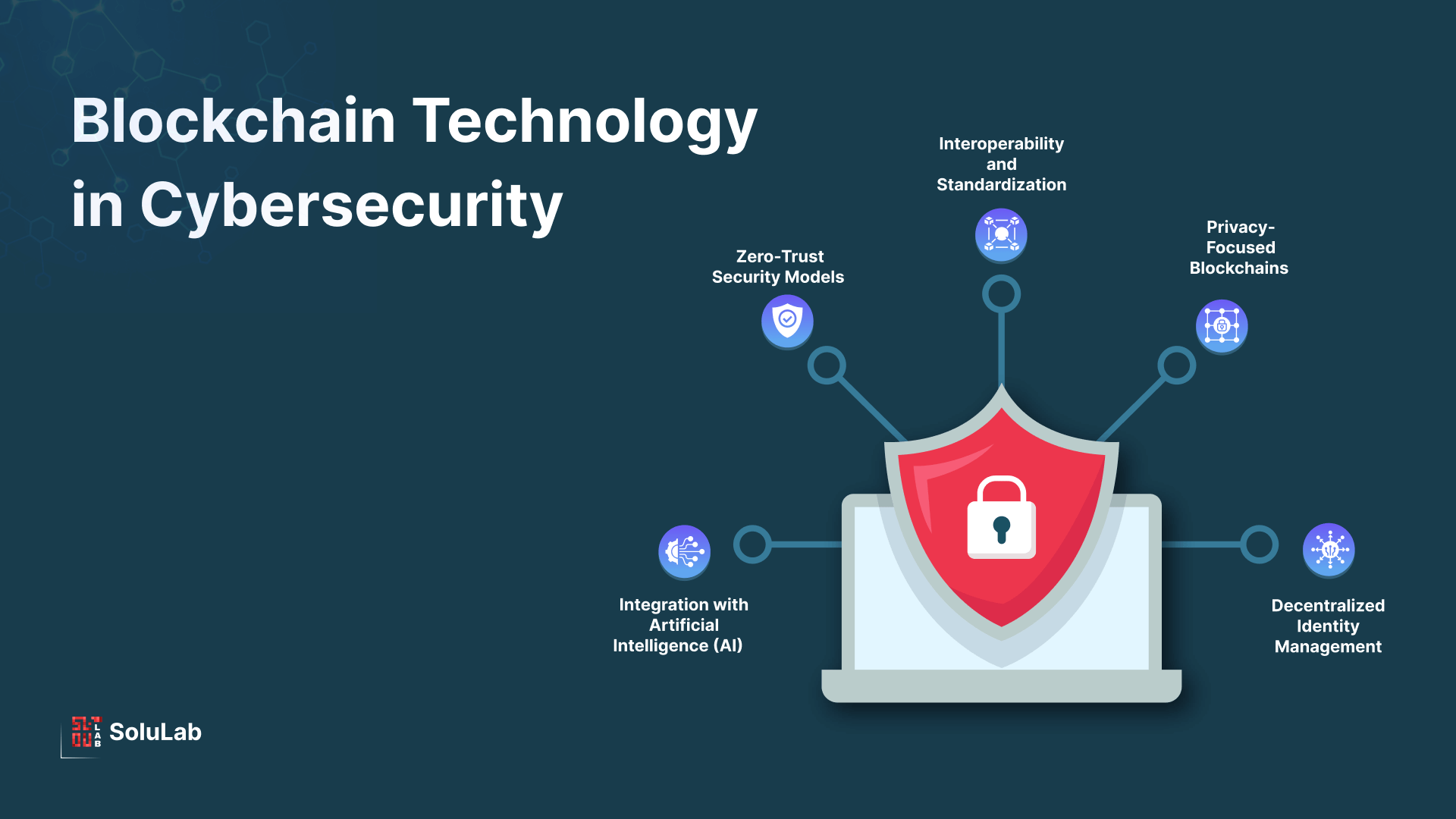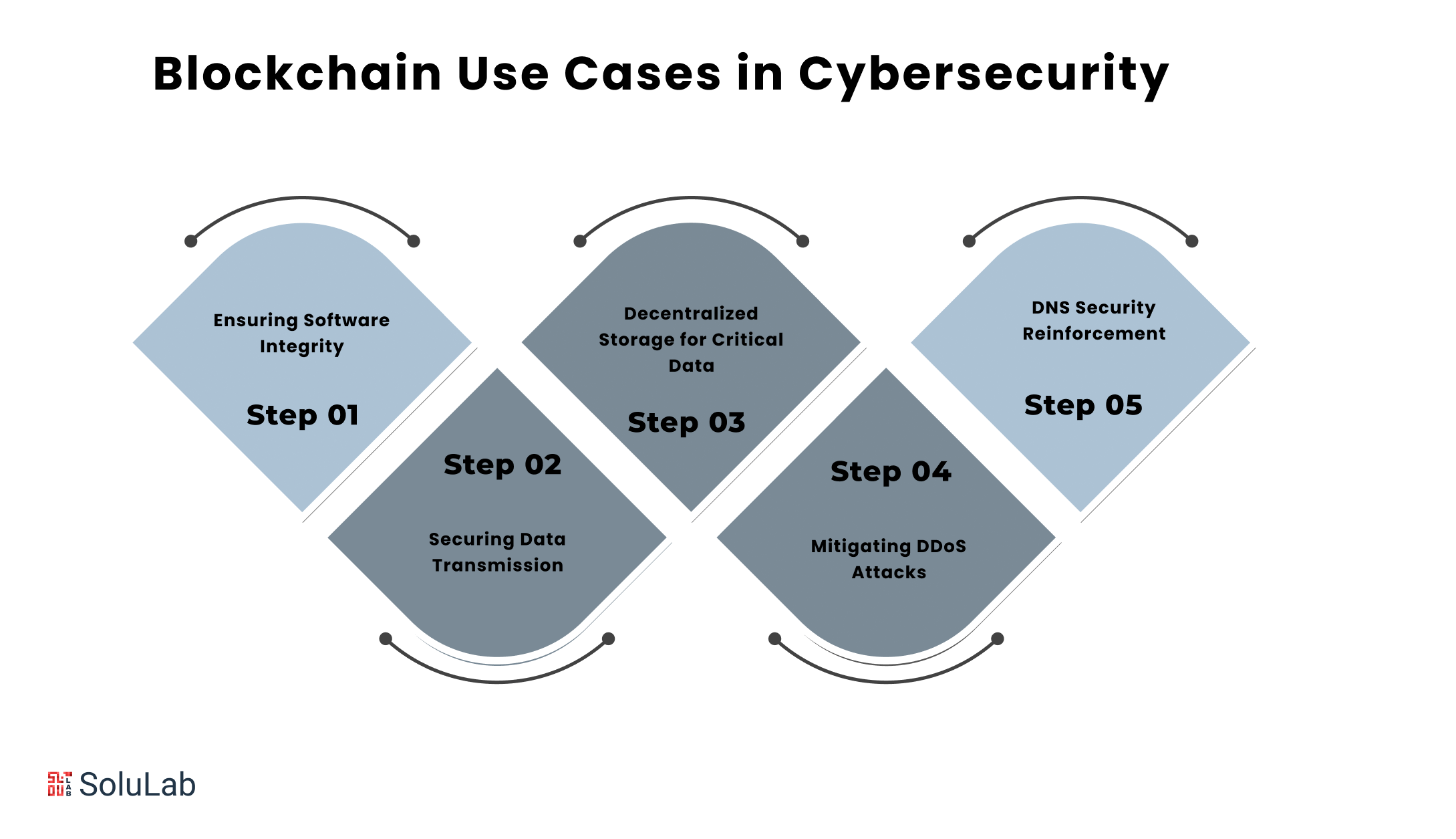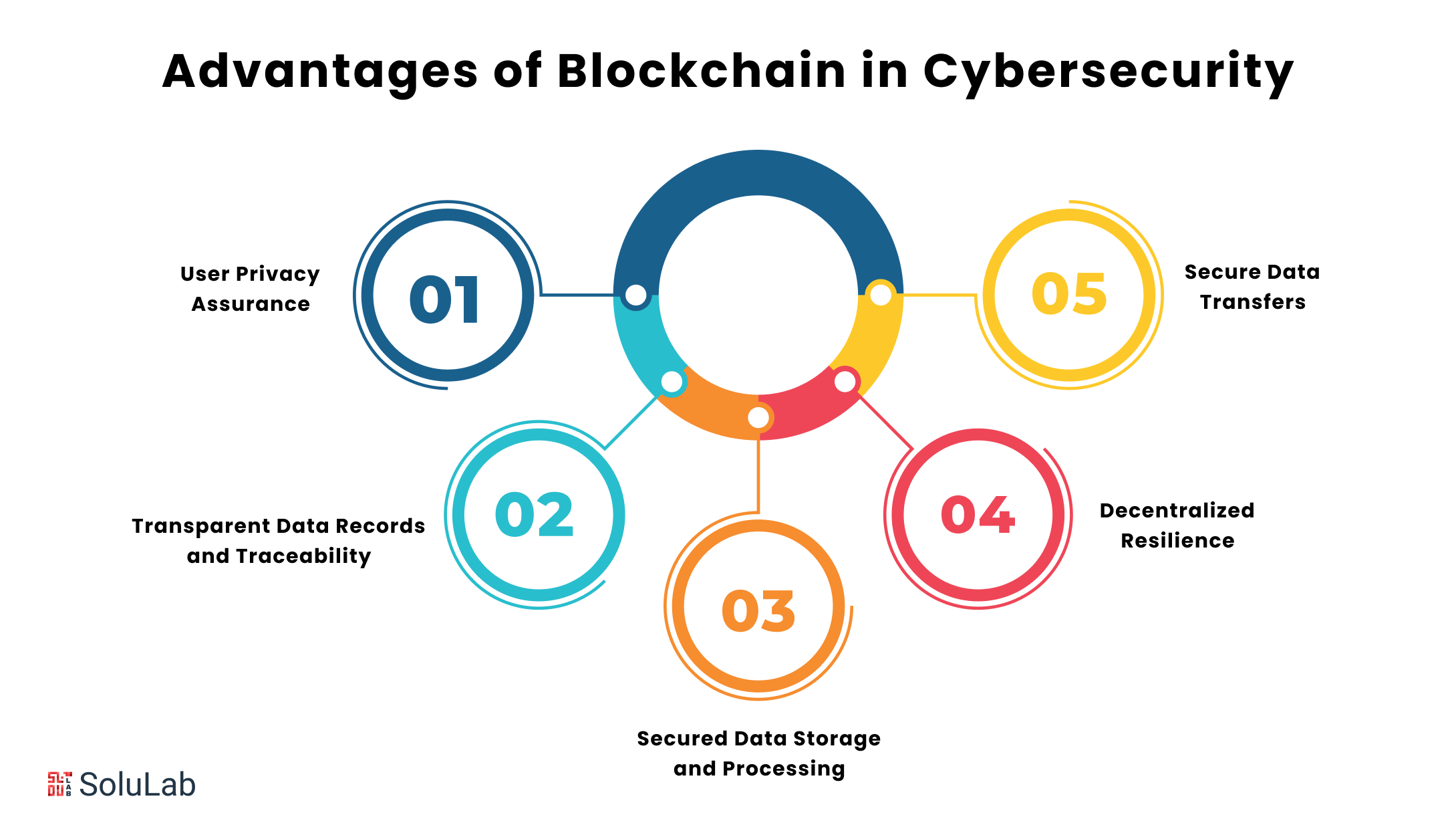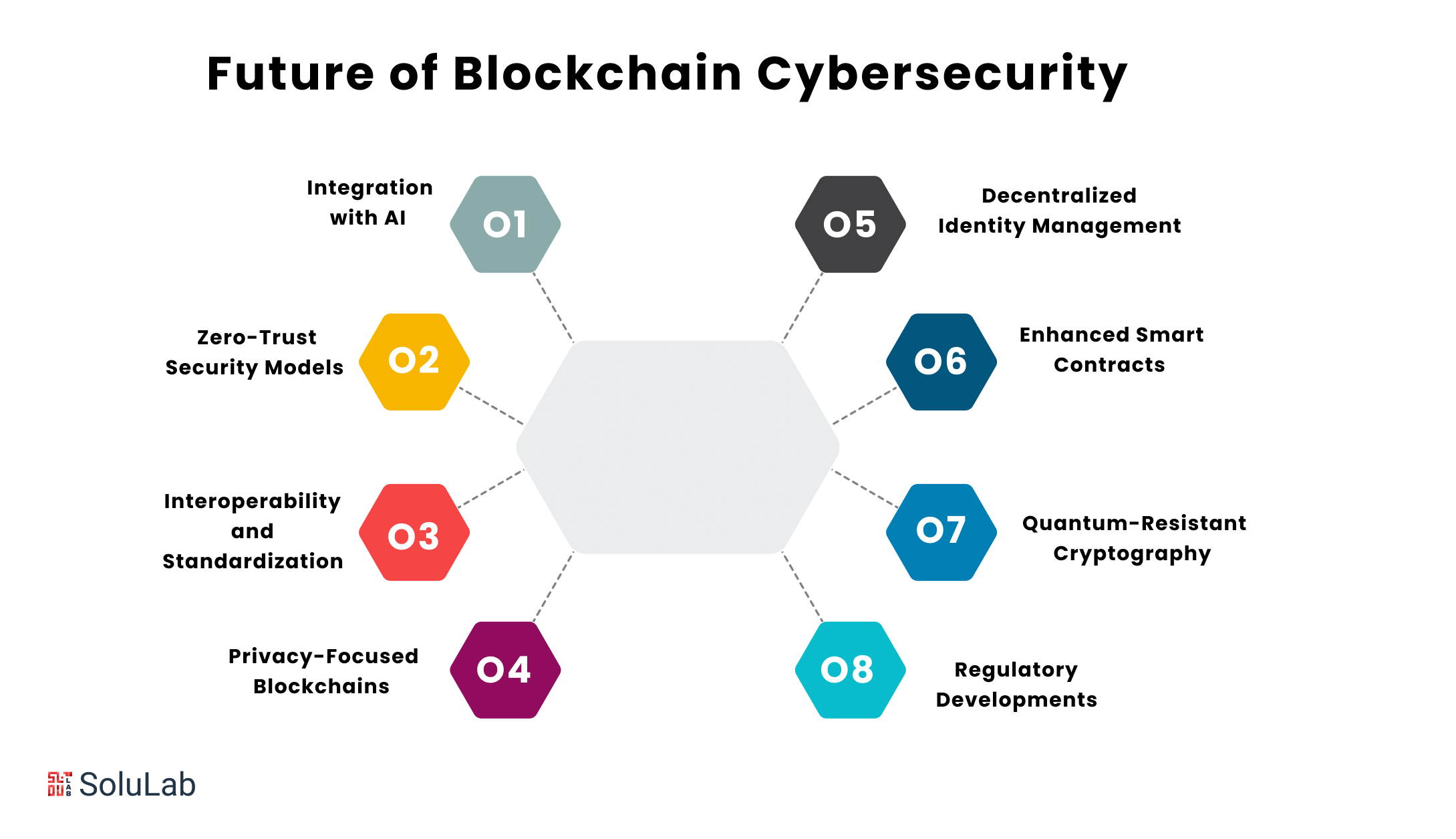
In today’s digital world, blockchain cyber security is becoming increasingly important. The threat of cyberattacks has risen significantly as our dependence on technology and the internet has expanded. As a result, different solutions, including the usage of blockchain technology, have been created to assist in securing against these vulnerabilities. Blockchain technology initially emerged primarily as the underpinning technology for Bitcoin, but its potential uses have now moved well beyond the domain of cryptocurrency. A particular field where blockchain technology is rapidly being used is to improve cybersecurity.
This technology has certain characteristics that have made it well-suited for data security and cyberattack prevention. For example, because blockchain is decentralized, it cannot be regulated by a single body, making it less susceptible to assaults. Furthermore, because of the use of cryptographic algorithms and digital signatures, data kept on a blockchain is very safe and tamper-proof.
In this blog, we will look at the role of blockchain in cyber security. We will go over the numerous ways blockchain may be used to safeguard data and avoid cyberattacks, such as identity management, secure data storage, and secure communication. We will also look at some of the issues that come with adopting blockchain for cybersecurity and how to overcome them.
So, without any further ado, let’s get started!
What Exactly is Blockchain Technology?
Due to blockchain technology, a distributed ledger system, data may be safely and freely stored and transmitted. A blockchain is simply a digital record of transactions that is distributed over a network of computers rather than being housed on a single server. Before being transferred to the blockchain, each transaction is validated by a network of nodes. Once uploaded to the blockchain, a transaction cannot be changed or erased, thus providing a secure and tamper-proof method of storing and exchanging data.
The term “blockchain” refers to how the technology works. By adding blocks of linked transactions, the blockchain gets updated in a sequential, linear fashion. Every block includes a unique digital signature, referred to as a hash, that links it to the previous block on the chain. This results in a continuous sequence of blocks that serves as a permanent and transparent history of all network transactions.
Blockchain technology tends to be more secure and resistant to assaults than traditional centralized systems because of its decentralized nature, which prohibits it from being managed by a single entity. Blockchain technology has several potential uses, including cryptocurrencies, supply chain management, and healthcare data, among others.
How Does Blockchain Technology Work?
Blockchain operates as a decentralized and distributed network where data blocks are shared among interconnected members. Each block contains the previous block’s hash, creating an immutable transaction history. The network community’s vigilance ensures tampering is swiftly rejected, bolstering the security of various sectors such as finance, healthcare, supply chains, and more.
- Decentralized Storage: Through a massive network of computers, blockchain scatters data, rendering it impervious to theft. Any attempt to tamper with a block triggers collective scrutiny, preventing unauthorized access and ensuring data security.
- IoT Security: Blockchain’s decentralized architecture and distributed records play a pivotal role in securing Internet of Things (IoT) devices. Smart contracts validate transactions, manage IoT activities, and fortify devices against potential hacker threats.
- DDoS Protection: Decentralization in blockchain safeguards against Distributed Denial of Service (DDoS) attacks, which can cripple entire infrastructures. This resilience ensures the system remains functional, even in the face of orchestrated attacks.
- Eliminating Human Factor in Authentication: Blockchain eliminates the need for traditional usernames and passwords, employing a distributed public key system for device and user authentication. SSL certificates replace passwords, enhancing security protocols and thwarting potential cyber threats.
- Secure Private Messaging: Blockchain facilitates private messaging with robust encryption, surpassing conventional encrypted apps. Utilizing a Public Key Infrastructure (PKI), ensures the confidentiality of textual conversations, shielding private information from cyber-attacks.
In summary, blockchain technology employs encryption and cryptographic keys to secure and privatize data. Its decentralized nature and stringent validation mechanisms ensure the integrity of data records, making it a formidable defense against hacking and unauthorized access.
How Does Blockchain Technology Improve Cyber Security?
Cybersecurity blockchain technology has the ability to improve in a variety of ways, including:
-
Decentralized Architecture
The decentralized design of blockchain technology is one of its primary features. Because there is no one point of control, hackers will find it harder to attack and corrupt the system. Every node in the network has an extra copy of the blockchain ledger, and every modification to the ledger requires network agreement, making it almost difficult to change anything on the blockchain without being detected.
-
Immutable Records
A blockchain’s information is immutable, which means that once a transaction has been saved, it cannot be changed or removed. This helps to avoid data tampering and guarantees data integrity. This capability is especially beneficial for applications requiring a high level of data protection, such as monetary transactions, healthcare records, and supply chain management.
-
Public Key Cryptography
To enable safe transactions, blockchain technology employs public key cryptography. Every individual has a distinct public and private key, and transactions are signed using the private key. Without the user’s private key, it is almost difficult for anybody to gain access to and change transactions.
-
Smart Contracts
Smart contracts are programs that run on their own and are maintained on the blockchain. They are capable of automating complicated operations and enforcing rules without the use of middlemen. Because smart contracts are tamper-proof and transparent, they are perfect for applications requiring trust and transparency.
Blockchain Use Cases in Cybersecurity

Blockchain technology has emerged as a potent tool in fortifying blockchain cyber security measures, offering innovative solutions to address the evolving challenges in the digital realm. Here are key use cases where cybersecurity in blockchain is making a significant impact:
- Ensuring Software Integrity: Blockchain’s utility extends to verifying the integrity of software downloads and installers, offering a robust defense against malicious software infiltration. Hashes are recorded in the blockchain, enabling a comparison with new software identities to validate the authenticity of downloads and updates, safeguarding devices from potential security breaches.
- Securing Data Transmission: Utilizing encryption, Blockchain use cases serves as a protective shield for data in transit, preventing unauthorized access. This ensures that sensitive information remains confidential and secure during transmission, mitigating the risk of interception by malicious actors.
- Decentralized Storage for Critical Data: As the volume of generated data continues to escalate, blockchain-based storage solutions play a pivotal role in achieving decentralized storage. This approach not only addresses scalability challenges but also enhances data protection by distributing critical information across the network, reducing vulnerabilities associated with centralized storage systems.
- Mitigating DDoS Attacks: In the face of rampant Distributed Denial of Service (DDoS) attacks, Blockchain emerges as a formidable solution. The inherent properties of immutability and cryptography contribute to its effectiveness in countering these attacks, as it can withstand the onslaught of malicious traffic, ensuring the uninterrupted flow of services.
- DNS Security Reinforcement: The Domain Name System (DNS), akin to a public directory linking domain names to IP addresses, is susceptible to exploitation by hackers. Blockchain’s immutability and decentralized systems offer an enhanced layer of security for storing DNS records. This approach mitigates the risk of unauthorized access and manipulation, fortifying the DNS against potential attacks that could compromise website availability.
In summary, using blockchain in cyber security measures addresses critical concerns surrounding data protection, software integrity, secure data transmission, decentralized storage, and resilience against various cyber threats, making it a versatile and effective solution in the evolving landscape of digital security.
Related: Artificial Intelligence (AI) in Modern Cybersecurity
Blockchain Application in Cybersecurity
The CIA triad model is used in cybersecurity to examine the safety of an organization model. The triad is made up of-
- Confidentiality
- Integrity
- Availability
Blockchain enables us to ensure that all of these policies are followed.
1. Confidentiality
It involves ensuring that only interested and legally permitted individuals have access to the relevant data. Full encryption of blockchain data guarantees that unauthorized parties cannot access the data as it travels over untrusted networks. To avoid assaults from within the network, safety precautions such as access restrictions should be applied directly at the application level. Blockchain can provide additional security measures by authenticating participants and encrypting their communication using a public key system. However, storing backups of private keys in secondary locations offers a high danger of theft of private keys. Key management processes such as IETF or RFC and cryptographic techniques that use integer factorization issues should be applied to prevent this.
2. Integrity
The immutability and traceability embedded into blockchains assist enterprises in ensuring data integrity. In the case of a 51% cyber control assault, consensus model protocols can also assist businesses in implementing ways to avoid and manage ledger splitting. In Blockchain, the past state of the system is saved with each successive iteration, creating a completely traceable history log. Smart contracts may be used to verify and impose norms between parties to stop miners from mining data blocks.
3. Availability
In recent years, cyberattacks seeking to disrupt the availability of technological services have increased, with DDoS being the most popular sort of assault. DDoS assaults, on the other hand, are costly in blockchain-based systems because the attacker attempts to overwhelm the network with a large number of little transactions. Because blockchains possess no single point of failure, IP-based DDoS assaults are less likely to affect routine operations. Utilizing a VPN with a dedicated IP can also help mitigate DDoS attacks by providing a stable and secure network endpoint. Data stays accessible via numerous nodes, allowing entire copies of the ledger to be retrieved at all times. Platforms and systems are more resilient due to the combination of several nodes and distributed operations.
Advantages of Employing Blockchain in Cybersecurity

In cybersecurity, the advantages offered by blockchain technology play a pivotal role in fortifying digital defenses. The assurance of user privacy through public key cryptography, transparent data records with traceability, and secure data storage underscores the reliability and integrity of blockchain systems. The decentralized resilience, eliminating single points of failure and withstanding DDoS attacks, ensures the continuous availability of critical systems. Additionally, the secure data transfers facilitated by the Public Key Infrastructure (PKI) and automated execution of agreements through smart contracts further contribute to a robust cybersecurity posture. These advantages collectively position blockchain as a valuable asset in safeguarding sensitive information and mitigating various cyber threats.
Let’s have a look at some of the advantages of using blockchain in cybersecurity:
1. User Privacy Assurance: Public key cryptography within the Blockchain network safeguards user confidentiality, ensuring secure and authenticated access to sensitive information.
2. Transparent Data Records and Traceability: Blockchain maintains an immutable history of transactions, enabling anytime tracing. Digital signatures from Blockchain network members enhance transparency, providing a verifiable record of all transactions.
3. Secured Data Storage and Processing: Blockchain’s immutability and meticulous record-keeping ensure the safe and secure storage of data, guarding against unauthorized alterations or compromises.
4. Decentralized Resilience: The decentralized nature of Blockchain systems eliminates single points of failure. In the face of DDoS attacks, where multiple copies of ledgers are maintained, the system remains uncompromised, ensuring continuous operation.
5. Secure Data Transfers: The Public Key Infrastructure (PKI) in Blockchain ensures authentication during data transfers, while smart contracts automate the execution of agreements between parties, ensuring safe and reliable data transfers.
Drawbacks of Utilizing Blockchain in Cybersecurity
Despite the numerous advantages, the integration of blockchain technology into cybersecurity is not without challenges. The reliance on private keys for data encryption poses a significant drawback, as the irreversible loss of these keys can lead to permanent data inaccessibility. Issues of adaptability and scalability must be carefully navigated, considering the limitations on block volume and transactions per second in blockchain networks. Moreover, the elevated operating costs associated with the demanding computing power and storage requirements present a financial challenge compared to non-blockchain alternatives. The absence of comprehensive global governance for blockchain concepts adds a layer of complexity to cybersecurity blockchain applications, necessitating the development of regulatory frameworks. Furthermore, the shortage of blockchain-literate professionals hampers widespread adoption, highlighting the need for increased education and expertise in the field to fully harness the potential of blockchain in cyber security.
Now, let’s have a look at some of the drawbacks of blockchain in cybersecurity:
1. Dependency on Private Keys: Blockchain heavily relies on private keys for data encryption, and the irrecoverability of lost private keys poses a risk of permanent data inaccessibility.
2. Challenges in Adaptability and Scalability: Blockchain networks face limitations in block volume and transactions per second, necessitating careful consideration of scalability issues during integration into existing systems.
3. Elevated Operating Costs: The computing power and storage demands of Blockchain contribute to higher operating costs compared to non-Blockchain applications in the realm of cybersecurity.
4. Lack of Global Governance: Globally, Blockchain concepts lack comprehensive regulation and frameworks, posing challenges in maintaining governance and compliance in cybersecurity applications.
5. Shortage of Blockchain Literacy: Despite the myriad applications of Blockchain in cyber security, a shortage of skilled developers exists, requiring profound knowledge of various development tools and programming languages. This scarcity hinders the widespread adoption of Blockchain technology in cybersecurity practices.
Real-World Applications Demonstrating Blockchain in Cybersecurity
In cybersecurity, the showcased real-world applications of blockchain technology underscore its versatility and efficacy in diverse sectors. These examples demonstrate blockchain’s potential not only in traditional banking and financial transactions but also in critical domains such as healthcare, government, and defense. The collaborative efforts of global institutions, governments, and enterprises highlight the growing recognition of blockchain as a transformative force in fortifying digital security. As technology continues to advance, these pioneering applications pave the way for further innovations, positioning blockchain as a cornerstone in the ongoing efforts to address the complex challenges posed by cyber threats.
Let’s look at some of the real-world applications of how blockchain has worked in cybersecurity:
1. Barclays – Reinventing Fund Transfers: In London, Barclays has sought to revolutionize the security of fund transfers by leveraging blockchain technology. Their patent filing underscores the intent to enhance stability in cryptocurrency transfers through the use of Distributed Ledger Technology (DLT). By storing customer information securely on the blockchain, Barclays aims to fortify the security of traditional banking transactions.
2. CISCO – Securing IoT Devices: In San Jose, California, CISCO is exploring the integration of blockchain to enhance the security of Internet of Things (IoT) devices. Leveraging blockchain’s elimination of single points of failure and robust encryption, CISCO aims to ensure the protection of sensitive data transmitted by IoT devices.
3. Coinbase – Fortifying Cryptocurrency Security: Coinbase, based in San Francisco, California, exemplifies the application of encryption in securing cryptocurrency wallets and passwords. Beyond technology, Coinbase implements rigorous background checks on employees to further fortify the security of cryptocurrencies held within its platform.
4. Australian Government – Blockchain-Powered Cybersecurity Network: Canberra, Australia, envisions a robust cybersecurity network built on Distributed Ledger Technology (DLT). Collaborating with IBM, the Australian government aims to establish a secure blockchain ecosystem for storing government documents, showcasing the potential of blockchain in national security.
5. Philips Healthcare – Transforming Healthcare with Blockchain: In Andover, Massachusetts, Philips Healthcare is at the forefront of revolutionizing the healthcare industry. Collaborating with global hospitals, the company utilizes blockchain and artificial intelligence to create an ecosystem that analyzes operational, administrative, and medical data, emphasizing the role of blockchain in healthcare innovation.
6. Chinese Military – Safeguarding Intelligence: Beijing, China, witnesses the Chinese government and military harnessing blockchain for cybersecurity. With a focus on securing vital government and military information, China explores the potential of blockchain in bolstering national defense and intelligence.
7. Founders Bank – Decentralized Banking: Valletta, Malta, is home to Founders Bank, aiming to be the world’s first decentralized bank owned by its users. Utilizing encryption and distributed ledgers, the bank focuses on securing users’ cryptocurrencies and reshaping the traditional banking model.
8. The State of Colorado – Blockchain-Secured Records: In Denver, Colorado, the State Senate has passed a bill advocating the use of blockchain to secure record storage. The initiative aims to mitigate the rising tide of cyber attacks by implementing blockchain technology in the management of sensitive government records.
9. J. P. Morgan – Private Transactions with Quorum: New York, NY, sees J. P. Morgan’s Quorum platform leveraging blockchain to process private transactions. Integrating smart contracts and cryptography, the platform ensures the security of traditional banking transactions while exploring the potential of blockchain in the financial sector.
10. Health Linkages – Secure Patient Records: In Mountain View, California, Health Linkages envisions using blockchain to maintain the security of patient records. This innovative application allows only authorized personnel to access sensitive healthcare information, creating a chronological record of healthcare events to aid in informed decision-making by medical professionals.
Read Also: Generative AI in Cybersecurity
Future of Blockchain Cybersecurity

The future of blockchain in cybersecurity holds promise for transformative changes and innovative solutions, driven by the evolving threat landscape and the dynamic nature of technology. Several key trends are likely to shape the future of blockchain cybersecurity:
1. Integration with Artificial Intelligence (AI): The convergence of blockchain and AI is expected to enhance cybersecurity capabilities significantly. AI algorithms can leverage the transparent and secure nature of blockchain to analyze vast datasets, identify patterns, and proactively detect and respond to cyber threats in real time.
2. Zero-Trust Security Models: Blockchain’s decentralized and trustless architecture aligns with the principles of zero-trust security. Future cybersecurity strategies are likely to adopt a zero-trust approach, where verification is required from everyone and everything attempting to connect to the network, mitigating the risks associated with unauthorized access.
3. Interoperability and Standardization: As blockchain applications become more widespread, the need for interoperability and standardization will increase. Future developments may focus on creating common standards, allowing different blockchain networks to seamlessly communicate and share information, enhancing overall cybersecurity resilience.
4. Privacy-Focused Blockchains: With an increasing emphasis on data privacy, future blockchain implementations in cybersecurity may prioritize privacy-focused features. Zero-knowledge proofs, homomorphic encryption, and other privacy-preserving techniques could become integral to blockchain protocols, ensuring confidential transactions and secure data sharing.
5. Decentralized Identity Management: Blockchain’s ability to provide secure and decentralized identity management is likely to gain prominence. Future systems may leverage blockchain to enable individuals to have greater control over their digital identities, reducing the risk of identity theft and unauthorized access.
6. Enhanced Smart Contracts: Smart contracts, self-executing contracts with coded terms, are poised for refinement. Future innovation Technology iterations may incorporate advanced security features, such as formal verification methods, to ensure the correctness and security of smart contract execution, reducing vulnerabilities and potential exploits.
7. Quantum-Resistant Cryptography: As quantum computing advancements pose potential threats to current cryptographic methods, the future of blockchain cybersecurity may see the adoption of quantum-resistant cryptography. This involves developing cryptographic algorithms that can withstand the computational power of quantum computers, ensuring long-term security.
8. Regulatory Developments: Global regulatory frameworks for blockchain and cryptocurrencies are expected to evolve. Clearer regulations will provide a more secure and stable environment for blockchain implementations in various sectors, fostering widespread adoption and compliance.
Overall, the future of blockchain in cybersecurity holds exciting possibilities. As technology continues to advance, the integration of blockchain with emerging technologies, coupled with a focus on privacy, interoperability, and enhanced security measures, is set to redefine the landscape of cybersecurity, providing robust solutions to the ever-growing challenges posed by cyber threats.
Concluding Remarks
In conclusion, the role of blockchain in cybersecurity is undeniably transformative, ushering in a new era of secure, transparent, and decentralized digital ecosystems. Blockchain’s ability to ensure confidentiality, integrity, and availability aligns seamlessly with the foundational principles of cybersecurity, offering innovative solutions to combat evolving cyber threats. The real-world applications across industries, from banking and healthcare to government and defense, underscore the versatility and potential of blockchain technology in fortifying digital defenses. As we look ahead, the dynamic intersection of blockchain with emerging technologies like AI, the advent of privacy-focused blockchains, and the ongoing pursuit of quantum-resistant cryptography paint a promising future for cybersecurity.
Navigating the complexities of blockchain implementation requires expertise and innovation. SoluLab- a blockchain development company stands as a reliable partner in the realm of blockchain development, providing tailored solutions that harness the full potential of this transformative technology. With a commitment to security, scalability, and blockchain applications, SoluLab empowers businesses to stay ahead in the ever-evolving landscape of cybersecurity. Explore the possibilities with SoluLab’s blockchain development services and take the next step towards a secure and resilient digital future. Contact us today to embark on your blockchain journey and fortify your digital presence.
FAQs
1. How does blockchain enhance cybersecurity?
Blockchain enhances cybersecurity through its decentralized, transparent, and tamper-resistant nature. It ensures confidentiality with robust encryption, maintains data integrity through immutability, and guarantees availability by eliminating single points of failure. These features by blockchain developers collectively fortify digital systems against cyber threats.
2. What are the key advantages of using blockchain in cybersecurity?
The key advantages include user confidentiality through public key cryptography, transparent data records and traceability, secure data storage with immutability, resilience against single points of failure, and safe data transfers using the Public Key Infrastructure (PKI) and smart contracts.
3. Can blockchain be applied beyond financial sectors for cybersecurity?
Absolutely. Blockchain’s applications extend beyond finance. Examples include healthcare record security, securing IoT devices, protecting military intelligence, and creating decentralized banks. Its decentralized and transparent nature makes it versatile for various cybersecurity needs across industries.
4. How can SoluLab assist in blockchain consulting for cybersecurity?
SoluLab is a leading blockchain consulting company, providing tailored solutions for businesses aiming to fortify their cybersecurity. Their expertise in blockchain consulting services encompasses security, scalability, and cutting-edge applications. SoluLab empowers clients to harness the full potential of blockchain, ensuring a secure and resilient digital future.
5. What challenges are associated with using blockchain in cybersecurity?
Challenges include the reliance on private keys for encryption, adaptability and scalability issues, high operating costs due to computing power demands, lack of global governance, and a shortage of blockchain-literate professionals. Addressing these challenges is crucial for maximizing the benefits of blockchain in cybersecurity.






